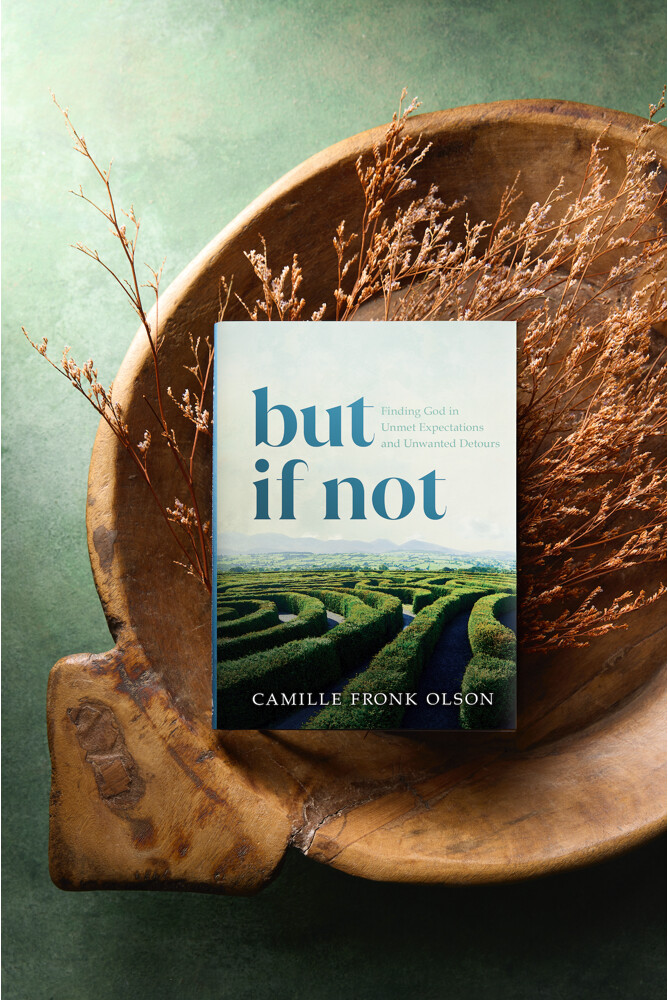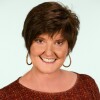Sometimes the state of our bodies’ health tutors us in our desires to become more like the Savior in ways we couldn’t learn any other way. Suffering is part of the plan and has the potential to be remarkably instructive. Instead of asking why this happened to us or our loved one, we might ask who has been with us throughout the ordeal.
In such tender times, feeling the presence of God or His angels is not uncommon. We are not alone.
The best way I know to teach this is by hearing testimonials of those who have experienced it.
A Loss of Eyesight
Patricia Parkinson was born with good eyesight but began losing it at age seven and was blind at age eleven. When her young nephew asked her why she hadn’t asked Heavenly Father for new eyes because He gives us whatever we want, Pat answered, “Well, sometimes Heavenly Father doesn’t work like that. Sometimes He needs you to learn something, and so He doesn’t give you everything you want. Sometimes you have to wait. Heavenly Father and the Savior know best what is good for us and what we need. So They aren’t going to grant you everything you want in the moment you want it.”
Because Elder Brook P. Hales of the Seventy had known Pat for many years, he had opportunities to see how she responded to her unexpected life with a disability. He expressed his admiration for her positive and happy attitude, to which Pat replied, “Well, you have not been at home with me, have you? I have my moments. I’ve had rather severe bouts of depression, and I’ve cried a lot. ...
From the time I started losing my sight, it was strange, but I knew that Heavenly Father and the Savior were with my family and me. ... I have ended up being a successful enough person, and generally I have been a happy person. ... To those who ask me if I am angry because I am blind, I respond, ‘Who would I be angry with? Heavenly Father is in this with me; I am not alone. He is with me all the time.’”1
Pat did not imply that her life was ideal; she learned to accept that mortality includes the likelihood of loss of physical abilities. Rather than dwelling on her losses, however, Pat used her disability to find God in her life. Her loss of physical eyesight led her to see God’s presence more clearly.
Colon Cancer out of Nowhere
A religion scholar, Kate Bowler, was living her dream as the wife of an ideal man, the mother of a miracle son, and in her dream job as a professor at Duke Divinity School. …
And then at age 35, she was diagnosed with stage IV colon cancer. Out of nowhere.
In a touching, humorous, and heart-wrenching memoir of her continuing struggle for survival after the diagnosis, she shares insight into more meaningful living while learning about dying.
She concludes that her illness did not come as a punishment for displeasing God or because she didn’t do enough good. She doesn’t ask that question. Instead, she reads letters from fellow sufferers who speak of Someone who was with them when they thought the end had come. One man wrote her that he “doesn’t rationalize why some people are rescued and others are not. ... But he knows that God was there [in his time of terror] because he felt peace, indescribable peace, and it changed him forever.”2
Kate learned to avoid the trap that claims that God punishes us when we displease Him, even when believers around her told her otherwise. Instead of asking “why me?” she sought understanding from fellow sufferers who had discovered peace and hope. Empathy for someone suffering serious illness is a blessing that can be learned through similar suffering.
The Effect of Illness on Testimony
Elder Neal A. Maxwell recognized a deeper way to teach the gospel of Jesus Christ because he endured years of serious illness. Shortly before being diagnosed with leukemia, he wrote an article entitled “Enduring Well,” in which he observed, “Certain forms of suffering, endured well, can actually be ennobling. ... Part of enduring well consists of being meek enough, amid our suffering, to learn from our relevant experiences ... in ways which sanctify us.”
After enduring the effects of cancer and its treatment for three years, while “in a pondering mood about his illness, ... the soul voice of the Spirit came into his mind to whisper, ‘I have given you leukemia that you might teach my people with authenticity.’”3 This personal revelation to one of the Twelve is not to suggest that God is responsible for giving diseases and serious illness to everyone. In this specific instance, Elder Maxwell learned that suffering from cancer was part of his mortal education to complete his personal mission as God deemed important.
During those three years, Elder Maxwell learned a deeper understanding of what it means to endure well than even he, with his profound insight, had previously known.
A Different Kind of Healing Power
Finally, physical pain and death can open our eyes to less obvious miracles that God performs in our lives. As a young man, Elder Brent H. Nielson had just returned from his mission when his father was diagnosed with pancreatic cancer. His father and his entire family had great faith that he would be healed and soon return to normal life activities.
Rather than a miraculous healing occurring, his father’s cancer spread rapidly and took his life in a matter of months.
After the funeral, Elder Nielson said, “I began to wonder why my father had not been healed. I wondered if my faith was not strong enough. Why did some families receive a miracle, but our family did not?” Through searching and pondering scriptural accounts of the Savior’s healing miracles, Elder Nielson concluded,
I had mistakenly believed that the Savior’s healing power had not worked for my family. As I now look back with more mature eyes and experience, I see that the Savior’s healing power was evident in the lives of each of my family members. I was so focused on a physical healing that I failed to see the miracles that had occurred. The Lord strengthened and lifted my mother beyond her capacity through this difficult trial, and she led a long and productive life. She had a remarkable positive influence on her children and grandchildren. The Lord blessed me and my siblings with love, unity, faith, and resilience that became an important part of our lives and continues today.4
Premature deaths, loss of physical ability, mental deterioration, and the natural aging process nearly always upset our expectations for the future. In His own way, however, God seems poised to grant individually designed blessings that open new doors of learning, understanding, and becoming that always lead us into a closer relationship with Him. A quote frequently attributed to Elder Orson F. Whitney (a member of the Quorum of the Twelve from 1906 to 1931) teaches,
No pain that we suffer, no trial that we experience is wasted. It ministers to our education, to the development of such qualities as patience, faith, fortitude and humility. All that we suffer and all that we endure, especially when we endure it patiently, builds up our characters, purifies our hearts, expands our souls, and makes us more tender and charitable, more worthy to be called the children of God ... and it is through sorrow and suffering, toil and tribulation, that we gain the education that we come here to acquire and which will make us more like our Father and Mother in heaven.5
… Our lives may not be what we dreamed of, especially when our bodies lose their vitality and acuity, but we can’t help but feel gratitude and love for the One who knows more than we do. We are not alone. He is watching over us and giving us hope to still dream.
Finding our way through unmet expectations
Available at Deseret Book, deseretbook.com, and via Bookshelf+.
More articles for you:
▶ A surgeon’s mistake caused me intense suffering. What I know now about God
▶ How one couple relies on their covenants to face dementia with faith
▶ This Hebrew definition of faith will be on your mind for days
Notes
1. Brook P. Hales, “Answers to Prayer,” Ensign, May 2019.
2. Kate Bowler, Everything Happens for a Reason: And Other Lies I’ve Loved (New York, NY: Random House, 2018), 119–120, 170.
3. Bruce C. Hafen, A Disciple’s Life: The Biography of Neal A. Maxwell (Salt Lake City, UT: Deseret Book, 2002), 16, 562.
4. Brent H. Nielson, “Is There No Balm in Gilead?”, Liahona, November 2021.
5. As cited in Spencer W. Kimball, “Tragedy or Destiny” (Brigham Young University devotional, 6 December 1955), speeches.byu.edu; see also Teachings of Presidents of the Church: Spencer W. Kimball, 16.



